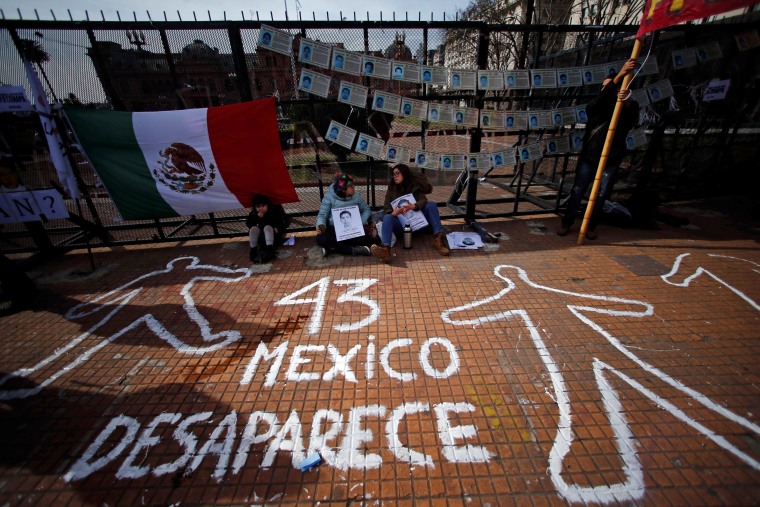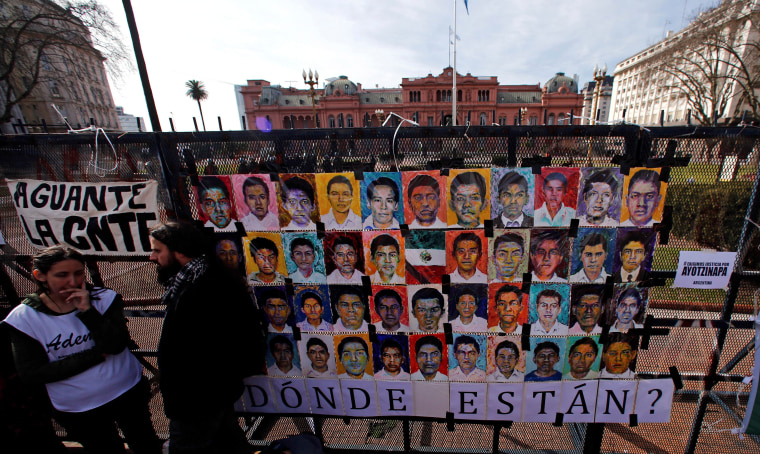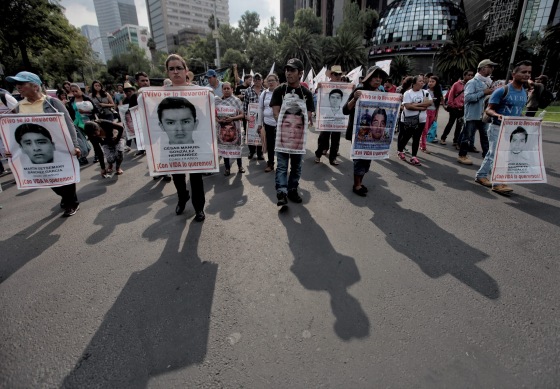The Inter-American Commission on Human Rights (IACHR) helped broker a deal between the families of 43 missing teachers’ college students and the Mexican government that will send technical advisers back to Mexico in August to monitor the ongoing investigation.
This decision comes just three months after the Mexican government declined to extend the contract for the panel of international investigators who worked for the human rights watchdog and presented key evidence that exposed how suspects in the case had been tortured for testimonies.

The technical advisers also bring new hope to the parents of the missing students who for one year and ten months have been demanding answers to what happened to their sons.
RELATED: Activists Rally for Dad of One of Mexico's '43' in NYC Half Marathon
“Since September 26 [2014] our lives have stopped,” said Mario César González Contreras, father of the 21-year-old missing student César Manuel González Hernández. “My wife and I left our jobs to move to the school. And we are still there searching for our son and his classmates.”
Almost two years later, the 43 students are now symbols of Mexico’s hope for social justice — galvanizing thousands of people across the county and abroad to stand up for human rights.

“The students from the Ayotzinapa teachers’ training college are the most combative,” Mr. González told NBC Latino. “They never give up. They always fight for the people. And that is why my son wanted to study there.”
RELATED: Mexico Tortured Suspects in Kidnapping of 43 Students: Report
César’s father, like many other everyday Mexicans who have taken to the streets, said he never saw himself as an activist. But now, Mr. González finds himself marching in the footsteps of his son, pushing beyond his own shortcomings to find justice.
“Unfortunately, as parents, we were never connected with activism because we had neither the knowledge nor the experience,” Mr. González said. “But fortunately my son has the heart to help people. Everything that is opposite from me. And as parents, we support our sons to become teachers so that they could overcome all of our shortcomings.”
The case itself has also attracted much attention, becoming an international stage where two opposing stories compete to define the image of Mexico.
RELATED: 'Semillas' Uses Dance, Art to Grow Ayotzinapa Awareness
“The Mexican government claims that it has made constitutional changes at the policy level, that it supports a robust democracy, and that it is an emerging economy,” said Mario Patrón, director of Centro Prodh, a human rights nonprofit in Mexico that offers legal support for the 43 student families. “But the Ayotzinapa case reveals how Mexico faces strong criminality and political corruption linked with organized crime.”
After Mexican president Enrique Peña Nieto’s government lost support in the June 5th regional elections for failing to crack down on corruption and gang violence, human rights violations could become an Achilles heel—the United States government has already withheld $5 million in drug war aid because of highly publicized cases, including the disappearance of the 43 students.
“The Ayotzinapa case set off a series of statements, calls-to-action and organizations that have questioned human rights violations,” Mr. Patrón told NBC Latino. “And have put Enrique Peña Nieto’s government on the defendant’s stand.”
